When the punishment finally came, Chris Badawi thought the worst was over.
The owner of Challenger Series League of Legends team Renegades had spent weeks awaiting the results of a Riot Games investigation into his alleged tampering with other teams. Riot kept its cards close to the vest, and he had no warning that it was considering a punishment as severe as it finally implemented: A one-year ban from the League Championship Series (LCS).
Tampering—persuading an employee (or player) to switch companies while under contract—is of varying legality depending on the industry. In sports, or esports, like League of Legends, it’s usually banned so as to protect competitive integrity. Badawi was found guilty of tampering with two Team Liquid players, though Riot didn’t disclose the details of its investigation. While the punishment was harsh, Badawi managed to avoid a serious backlash from the community, thanks in part to his argument that Riot Games’ anti-tampering rules may be too unfriendly for players.
Badawi accepted the punishment and prepared to move on. But more had gone on behind the scenes. Badawi had aggressively pursued other players for his team, and, in so doing, often crossed what other team owners saw as a bright ethical line. They weren’t happy.
On July 1, Gamespot released a collection of statements gathered from six LCS teams denouncing Badawi and alleging more wrongdoing on his part. Not only did they accuse him of a number of other tampering cases, they attacked Badawi’s character, claiming his stance that the industry needs to do better for its players was really self-serving propaganda designed to advance his own agenda: building a stronger team.
Badawi felt like he’d been ambushed. He’d been given an hour to give a statement before the piece was published, a timeframe that’s not unusual in the industry, though one not often applied to a piece with potential life-changing import. He said he got an emotional call from his mother after the news hit. His friends were worried about what he’d gotten himself into. And then there was the impact on his reputation within esports, all based off what he calls “blatant lies and unprovable rumors.” He told the Daily Dot it was the worst day of his life, next to the day his dad died and the day he was run over by a car.
The collection of statements included testimony from owners and management of Team Liquid, Team SoloMid, Winterfox, Cloud9, Gravity Gaming, and Team Impulse, all labelling Badawi a serial poacher (though tamperer is the correct term). One squad, Team Impulse, lambasted his actions as “ulterior motive driven” despite admitting it never interacted with him or his organization directly.
It was a cavalcade of condemnation, and in many ways the worst part wasn’t the accusations of tampering, it was the attack on his character and the ideals around which he built his team. The statements were essentially a series unsubstantiated accusations, with little or no evidence to support them—or disprove them. In fact, Riot Games had already investigated most of the allegations and didn’t find enough evidence to punish Badawi. That hardly washes away doubt. In fact, to many the statements seemed more credulous on account of their sheer volume and the fact that they largely paralleled the two situations for which Badawi had already been punished. Riot called the allegations “credible” even as it offered no punishment.
Badawi, who released a long statement about the original Riot ban, was uncharacteristically quiet about these new claims. He ultimately chose to speak only to the Daily Dot in the weeks following the controversy. “It doesn’t please me to be forced to respond with such brutal and honest directness,” Badawi wrote to the Daily Dot. “The reckless accounting of various rumors (some false, some improvable, some irrelevant) that were dangerously and irresponsibly masqueraded as ‘news’ has led to a situation where I find myself defending the very essence of my character.”
Badawi doesn’t dispute some accusations (in particular, those made by Cloud9). In one instance, a team manager later came to him and expressed regret over his statement, saying he didn’t believe it and didn’t support the “Badawi pitchfork mob.” In others, the allegations can’t be proven or disproven, as the only evidence is anecdotal. And in the case of the most serious claim, a team owner alleged Badawi offered a bribe to bench his star player. But according to Badawi, the exact opposite happened.
Working with Badawi and various LCS owners, we’ve done our best to retrace what happened. In some cases, Skype logs back up key conversations and claims; in others, there’s nothing but hearsay from either side. Is Badawi out only for himself? Did he put on a facade to trick LCS team owners into trusting him, then go behind their backs to steal their players? Or was this all just misinterpretation and miscommunication, where motivations are divined out of assumptions and feelings rather than facts?
The answer lies somewhere in the series of events that that started in January.
Cloud9
At the start of 2015, Chris Badawi was new to the esports scene. A patent litigation lawyer who had an epiphany after a car accident nearly claimed his life, Badawi wanted to do something he believed in instead of just working a job. “I want to look back on my life and be proud of what I’d accomplished,” he told me at the Midseason Invitational. And his dream was in one of his favorite pastimes: esports. The quickest way for him to get involved was to own a team. So when Curse Academy went on sale, he put in a bid.
That deal never went through. Team Liquid owner Steve Arhancet sold the team to a little-known figure in the scene named Davis Vague in January. But Badawi, who developed a relationship with Arhancet during the bidding process, spent a lot of time at the Team Liquid house to learn how to run an esports team. After a few weeks, he left to build his own organization.
Badawi worked quickly, making a couple of big moves. On Feb. 2, veteran LCS player Alberto “Crumbzz” Rengifo stepped down from Dignitas. Badawi met with the jungler and discussed his vision for a competitive team, convincing him to sign. He then brought on legendary Russian superstar Alex Ichetovkin, who’d arrived in America to revive his career just after his previous side failed to qualify for the LCS.
That left three spots open on the roster.
The natural place to look was through his connections. One potential target for AD carry was Yuri “KEITHMCBRIEF” Jew, who Badawi was familiar with through Team Liquid. During this period, Badawi contacted Jew to gauge his interest in his team, leading him to contact Arhancet to secure the player. According to Badawi, he worked out a deal with Team Liquid in principle for Jew’s services. But it fell through after Liquid brought Jew back into the starting lineup after the team’s Korean star, Chae “Piglet” Gwang-jin, started slumping.
Arhancet later discovered that Badawi had contacted Jew before reaching out to Team Liquid management, a breach of etiquette and Riot Games’ rules regarding tampering. According to Riot’s competitive ruling on Badawi, Arhancet warned Badawi about the league’s tampering rules. Badawi then messaged Jew. “I just learned I screwed up and he [Arhancet] didn’t want me to approach you first,” Badawi wrote. “Could you just pretend like we never had a conversation and let Steve facilitate the deal however he sees fit?”
After the run-in with Arhancet, Badawi contacted Riot Games seeking clarification on its policies regarding tampering. Riot reinforced that tampering was against the league’s rules and also issued what it later considered a written warning (though Riot did not discuss Jew with Badawi specifically until May). The warning read:
“At some point owners, players, coaches, are all behavior checked and if someone has a history of attempting to solicit players who are under contract, they may not pass their behavior check.”
On April 22, Badawi had a conversation with another Team Liquid player, Diego “Quas” Ruiz, during which he allegedly promised Ruiz a higher salary to play with Misfits. Badawi sees the conversation differently. Quas, he said, was a friend, and Badawi only spoke generally to him about his value as a player. “I believe in a world in which players are not kept in the dark,” he later wrote in a statement. “This was the framing of my conversation with Quas. It wasn’t about stealing him for my hypothetical team, or trying to get a player to leave a top 3 LCS team for a team that wasn’t even in the Challenger Series.”
It was these interactions with Ruiz and Jew that resulted in his eventual ban. In May, Riot instituted a new rule that directly applied to Badawi’s past activities:
“Any person that petitions for ownership into the LCS can be denied admission if they are found to have not acted with the professionalism sought by the LCS. Someone seeking admission into the LCS must meet the highest standards of character and integrity. Candidates who have violated this rule set or attempted to act against the spirit of these rules, even if not formally contracted to the rule set, can be denied admission into the LCS.”
Badawi had stayed busy throughout the start of the year as he expanded his search beyond his Team Liquid connections. On Feb. 16, not long after reaching out to Jew, Badawi sent an email to Cloud9 Tempest mid laner David “Yusui” Bloomquist with a proposition: consider joining Badawi’s team as a top laner. Yusui and Cloud9 Tempest had just been suspended from competition for the Spring Split for using a ringer in a match, putting their future together in question. Yusui was not contracted, though Badawi only learned that detail after he planned on contacting the player.
Yusui entertained the idea, but said he wanted to keep playing with jungler Anthony “Hard” Barkhovtsev. In the emails, Badawi said he’d have Team SoloMid coach Yoonsub “Locodoco” Choi, who he was “working pretty closely with,” scout Hard for him, but that he already had a jungler in Crumbzz. That led to the idea of Badawi potentially picking up the two players as the core of a second team, or even the entire Cloud9 Tempest squad.
On Feb. 23, Misfits management contacted Hard, who was contracted at the time, to broach the idea of Tempest moving to Misfits and set up a meeting with Badawi, who made his own pitch to the player.
Cloud9’s owner, Jack Etienne, wasn’t happy when he learned of Badawi’s actions.
“He’s trying to go around a contract he knows is in place, to talk to my players, to get confidential information from them before he ever approaches me,” Etienne told Gamespot.
Etienne believed the punishment Riot had meted out to Badawi was “correct” and that the ruling was a “done deal.” He was upset that Badawi contacted his player without his permission, and that he had asked Hard, who was under 18, for privileged information. Etienne chastised the other owner for actions he considered wrong, if not technically in conflict with Riot’s rules.
Badawi himself readily admits he talked to both players about joining his organization. Etienne’s statements were correct, he said. But he also emphasized that this didn’t violate Riot Games’ rules, and that he and Etienne maintain a cordial working relationship.
In fact, Etienne provided Badawi with contact information for Richie “Intense” Ngo, Cloud9 Tempest’s AD carry before the team was suspended, recommending him as a candidate for the role with Misfits. Ngo joined Misfits in March after a successful tryout, in part thanks to Etienne’s recommendation.
“This wasn’t and isn’t a big deal to either Jack or myself when it happened back in February, nor is it now,” Badawi said. “Yes, I spoke to two of his players from his ex-Challenger team that hadn’t played together for months due to a split-long disqualification in an attempt to figure out their future plans [and] obligations. Jack approached me about it and we had a friendly and amicable conversation ending with him actually offering me [Ngo’s’] contact.
“No rules were broken, no grudges were had. I still speak and interact with Jack to this day and have an amicable business relationship and personal respect for him as a man and owner.”
While Badawi is technically correct in that no rules were broken, Etienne brought up an important point in his discussions with Gamespot: Badawi seemed unconcerned with what other owners perceived as the proper etiquette for conducting business in the industry. He was more concerned that his actions were legal and that they didn’t break Riot’s rules.
Whatever the case, what happened with Cloud9 didn’t slow Badawi. On March 9, he launched his team, the Misfits (which would later rebrand to the name Renegades). Badawi announced a lineup featuring Rengifo, Ichetovkin, and newly recruited support player Maria “Remilia” Creveling. Later that month, the player Etienne recommended, Ngo, joined the team after a tryout, as did top laner Oleksii “RF Legendary” Kuziuta. The Misfits were ready to make their run into the Challenger Series and reach for the LCS.
But first, their mid laner had to carry another team there. On April 26, Alex Ichetovkin substituted for Team Dragon Knights in a best-of-five promotion series against Winterfox. He shone in the series, leading to Winterfox’s elimination. But according to one of the most serious accusations in the Gamespot piece, an alleged bribe almost kept him out of the competition.
The bribery case
In his statement to Gamespot, Winterfox owner Brian Cordry claimed that Badawi offered to keep Alex Ichetovkin out of the promotion series in exchange for money. It would have been, essentially, a bribe to increase Winterfox’s chances of staying in the LCS.
Bribery affects competitive integrity as much or more than tampering, and occupies much less of a moral grey area. But for some reason, Cordry’s claim received far less attention from the community than the others. Interestingly, Badawi doesn’t deny the circumstances of the conversation. In fact, he says Cordry got most of the details right, except the most important one: It was the Winterfox owner that solicited the offer, he claims.
“This, to me, was the most egregious and deplorable claim of the lot,” Badawi said. “Almost everything Cordry wrote was accurate except for one very important detail: He solicited me to have Alex not play for TDK, not the other way around.”
According to Cordry’s telling of events, Badawi danced around the idea of a bribe in a phone call, never going into specifics. He was allowing Ichetovkin to sub not because he wanted to knock out Winterfox, but because the Dragon Knights were paying him. And Ichetovkin “had a family to feed.”
It was at this point, Cordry said, “that it became clear to me where the conversation was leading, and why we were speaking via voice rather than text, and I was very apprehensive.” Cordry wanted to make sure he was hearing things right, and asked Badawi directly: Was he asking for money to bench Ichetovkin? “He confirmed that conclusion could be a possible option,” Cordry wrote. “At this point I stopped him; I told him that I didn’t think what he was implying (he hadn’t actually voiced the idea himself yet) was legal, and I was very uncertain if it would be ethical.”
Cordry said a Riot staffer was in “utter disbelief” about the conversation when he reached out to see if there was any way it could be in line with the league’s rules.
But Badawi says that Cordry, upset Ichetovkin was participating in the promotion series, contacted him to make the offer. Badawi didn’t believe it was in line with Riot’s rules, so suggested Cordry contact Riot while he consulted his lawyer, Bryce Blum, and veteran commentator Christopher “Montecristo” Mykles, who was advising Badawi at the time. (Mykles would later become co-owner of the Renegades.)
Badawi said he would have shot down the offer “instantly” but felt he had an obligation to his players. “I do not believe offers made to me regarding players are mine to make,” Badawi said. “If an offer of any kind is made I am obliged to inform the player and accordingly let them decide for themselves.”
According to both Blum and Mykles, Badawi spoke to them about the issue around this time, and both said that his account of the event at the time lined up with with what he’s said after the fact (in Mykles’ case, there are chat logs of the conversations). Blum notes that he never talked to Cordry himself—he can only recount what Badawi told him in April, with the relegation series against the Dragon Knights threatening to keep Winterfox out of the LCS on the horizon.
“I told him that this wasn’t something that he should even be entertaining,” Blum said. “It was morally wrong, and probably against the LCS rules.”
The next time he heard about the deal, it was off. Cordry had just heard back from the Riot Games officials.
Blum, who’s now director of esports at wagering company Unikrn, says he was “honestly shocked” when he read Cordry’s allegation months later, considering the severity of the claims and that it was the opposite of how he believes events transpired. But he also admits he can’t know for sure what really happened.
“I obviously wasn’t involved with the situation directly,” Blum said. “I just know what Chris told me and what him and I talked about. I suppose it’s possible he could have spun it in his conversation with me. It seems really unlikely to me, but I have no way of knowing for sure.”
It’s possible that Badawi made the offer but then lied about what happened to Blum and Mykles, plotting to cover his tracks months in advance. That might fit the vision of the conniving Badawi some owners seem to have, but in many ways it sounds very unlikely. He had no reason to lie to Blum; he was protected by attorney client privilege. Blum would never make the conversation public unless Badawi wanted him to.
Bribery is explicitly against Riot Games’ rules. Match fixing scandals related to betting have rocked other esports over the years—in Counter-Strike, players and managers received lifetime bans for the practice. In many ways, it’s hard to imagine not one, but two potential LCS owners might have considered a bribe, whatever their motivations. Either someone is lying, or both parties are victims of an extraordinary miscommunication. The only evidence is a voice conversation that neither recorded.
Gravity Gaming
A little more than one week after Ichetovkin helped kick Winterfox out of the LCS, Richie “Intense” Ngo left the Misfits. It was an amicable decision. There just wasn’t in-game chemistry between the players. That left Misfits precious little time to find an AD carry before the Challenger Ladder qualifying stage. The team brought in a substitute, Trevor “Stixxay” Hayes, the Counter Logic Gaming Black bottom lane carry, while searching for a more permanent fixture in the lineup.
Winterfox’s relegation left at least one AD carry a promising prospect. A report on the Daily Dot indicated that Johnny “Altec” Ru was looking for greener pastures. The talented player had removed Winterfox branding from his social media accounts and was courted by at least one LCS team. On May 18, he joined Gravity Gaming.
But in the Gamespot piece, Gravity Gaming General Manager Jake Fyfe claimed that Badawi attempted to poach Ru before he joined Gravity. He specifically noted a case where Badawi endeavored to ask Ru to scrim with the Misfits.
Badawi doesn’t deny having these conversations with Ru. In fact, he provided the Daily Dot a Skype log showing them.
The logs show that on May 12, he approached Ru with two simple questions: Are you under contract, and if so are you happy with it?
Ru answered that he was and he was happy. Badawi said he was happy for him and told him to “kick some ass this split.” He then inquired where Ru signed, and the player said it would be revealed soon. Badawi thanked him and that was that.
Later that night, Badawi sent another question to Ru, asking for a favor, but Ru was away. At the time, Misfits did not have an AD carry on the roster (though the signing of current AD carry Mohammad “Jebus” Tokhi was completed by May 14, just days later) and so required a ringer to fill in during practice. But before Badawi had a chance to ask Ru to scrim with them, Misfits got Counter Logic Gaming support Zaqueri “Aphromoo” Black to fill in.
Fyfe told Gamespot he believed that Badawi’s interactions with Ru were an attempt to poach him, noting that Badawi contacted Ru while he was under contract with Winterfox.
The conversations shown to the Daily Dot are rather benign. Badawi may have had interest in Ru as a potential candidate for his AD carry position, but he certainly didn’t seem malicious in his approach.
After all, on April 26, two weeks prior, Ru’s team lost their relegation series and fell out of the LCS. Contacting the player with those questions instead of Winterfox manager Brian Cordry may breach the protocol most owners believe in and doesn’t seem follow the protocol for contacting contracted players outlined in the LCS rulebook. But Winterfox was a Challenger team at the time and wasn’t subject to the same regulations as an LCS squad, and whether Badawi’s questions constitute an attempt to “solicit, lure, or make an offer of employment” to the player, as the rules forbid, is unclear. That’s certainly not what the evidence indicates happened.
Asking Ru to play with the team could have been an attempt to win him over and recruit him to Misfits. But no one believes Badawi was trying to poach Aphromoo, who actually played with the team. The use of ringers is common during practice sessions, after all, especially in Misfits’ situation at the time.
Plus, Fyfe’s heart wasn’t in the allegations, at least according to a conversation he had with Badawi after the Gamespot piece was published. He told Badawi that he regretted making a statement. When Badawi asked him if he believed he was trying to poach Altec, Fyfe replied with a straight “No.”
Fyfe says that Badawi offered “legal council that directly affected [Gravity Gaming]” and made things more difficult for him and his team. Badawi was nonplussed, but Fyfe wouldn’t clarify when asked to what he was specifically referring. Whatever Badawi did, it was enough for Fyfe to want a little payback.
“I got a headache from you, so I had an opportunity to maybe give you a headache back and I took it,” Fyfe said. “Not my brightest moment by any means, but that is essentially what it was on my end.”
“At the end of the day, I don’t truly identify with the Chris Badawi pitchfork mob,” Fyfe added, “But yeah what’s done is done.”
As for Badawi, he says he doesn’t blame Gravity for what happened.
“It’s a shame they got caught up in this mess, and they have already reached out to me and personally expressed regret for their part in my attempted character assassination,” he says.
But Altec wasn’t the only player Badawi allegedly tampered with in May. The most outrageous accusations—trying to poach not only a team’s star player, but their coach and their owner’s brother, too—all allegedly happened during the Midseason Invitational.
“He continued to poach, poach, poach and poach, and I think that’s why Riot had to make a difficult decision to ban him,” Andy “Reginald” Dinh, the owner of Team SoloMid, told Gamespot.
Team SoloMid
Badawi seems incredulous of the sheer audacity prescribed to him by Dinh, who accused him of attempting to poach Team SoloMid’s coach Yoonsub “Locodoco” Choi, his brother Dan Dinh, and star mid laner Søren “Bjergsen” Bjerg in the Gamespot piece.
Much like Team Liquid owner Arhancet, who introduced Badawi to Dinh, the SoloMid owner made himself and his staff at the disposal of the up-and-coming owner earlier in the year. But over a period of months, that relationship soured, coming to a head after the Midseason Invitational ended on May 10.
Reginald confronted Badawi over Skype on May 14 and notified him he was going to Riot to discuss Badawi’s alleged poaching. Riot investigated the claims and did not find grounds for punishment due to the lack of evidence.
The conduct in question all happened in person, meaning the only evidence of what occurred is hearsay. Dinh introduced Badawi to his brother and Choi while he was learning the esports ropes at the Team Liquid house, giving him resources to learn how to become an owner. Badawi dropped Choi’s names in conversations with at least one player, David “Yusui” Bloomquist. Etienne says that Badawi told Bloomquist he was “working with Locodoco to build a team.” It’s not unreasonable to think that Badawi could have use Choi’s advice to help guide his decisions on building a roster for his team. Whether that constitutes “working pretty closely” together, as Badawi put it in an email to Bloomquist, is a matter of semantics. That doesn’t imply a contractual relationship or an intention to create one, but it does establish that Badawi had opportunity to do as Dinh claims.
Badawi doesn’t deny that he used Choi as a resource and discussed running a team with Dinh’s brother. But things escalated from there, according to Dinh.
At the Midseason Invitational early in May, Badawi met Bjerg at an afterparty. Dinh was apparently unhappy about the contents of the conversation, alleging Badawi attempted to poach his player during the talk. Badawi described the conversation as a “small hello” when confronted by Dinh after the tournament.
“Now this assertion is particularly odd,” Badawi said. “I have personally seen a conversation between Loco and Riot where he denies I tried to poach him or anyone on his team. Since TSM’s statements to Riot directly contradict those made in the article, Reggie either doesn’t mind lying to one of them or, less believably, is unaware of that conversation’s existence. I would be interested to know how he would respond if approached by Riot about it.”
Riot did not respond to request to verify Badawi’s claims about the conversation between Choi and Riot. Team SoloMid offered the Daily Dot firsthand accounts from the parties involved for this piece, but ultimately didn’t follow through.
Update 3:05pm, Aug. 12: In a message to the Daily Dot after this article published, Yoonsup “Locodoco” Choi said that he told Andy “Reginald” Dinh that he felt his interactions with Badawi amounted to tampering. But he didn’t say the same when Riot approached him, because there was a lack of concrete evidence. He explains that his conversations with Chris felt like “Badawi beat around the bush” and Choi did not want to get caught in the middle of something that was not concretely provable.
Aftermath
Poaching’s recent high profile in League of Legends has left the term with a negative connotation that’s perhaps gotten out of hand. Poaching isn’t necessarily malicious or immoral, even if it is against the rules. While it’s related to stealing, it’s not actually “stealing” a player—a player isn’t a possession to be stolen. And players really are sometimes locked into predatory contracts that take advantage of them.
In other industries, poaching is not only legal, but encouraged—or at least, explicitly allowed. When companies collude on agreements not to poach each other’s employees, it constitutes an antitrust violation, because it unfairly depresses the salary and benefits of the employees. Earlier this year Apple, Google, Intel, and Adobe Systems paid a $415 million settlement in an antitrust lawsuit alleging they conspired on an anti-poaching agreement.
Of course, in sports and esports the situation is different. There are good reason to protect against poaching. An esports league under a developer like Riot is, by its nature, monopolistic, and anti-poaching rules serve to protect its competitive integrity. Other sports, however, have a collective bargaining agreement to waive the players’ rights to antitrust protection in exchange for a set of rules. In League, however, Riot Games serves as lawmaker, judge, and jury.
That’s why it’s essential that there’s a give and take, that there is a fair system for the players. The NFL has a free agency window with explicit contract end dates and rules ensuring players have a chance to gauge their value in an open market. Riot is attempting to build a system by releasing contract end dates and setting up a similar standard free agency window. But that’s not the case for Challenger Series teams. In many ways, as Badawi put it, he really was “flying blind” while wading into the esports waters, with the only guideposts the vague standards of etiquette held by team owners. Not that that necessarily excuses his actions, but as his statement regarding his punishment reveals, he received mixed signals from Riot.
Whatever the case, Riot Games made its ruling. And when it comes to competing in the LCS, that’s really all that matters. The ruling and Renegades’ subsequent statements on the issue caused an uproar in the community, bringing into question Riot’s policies, the lack of transparency in its investigation, and Badawi’s conduct. This was when the alternating narratives about Badawi began to propagate: He was either a martyr, paying for the sins of everyone complicit in letting players struggle in a largely unscrutinized industry, or he was a charismatic swindler who tricked other owners and the community into accepting him as a friend and who spun tampering into a selfless act.
All of this fanfare and Reddit manipulation taking place to make Chris out to be some martyr – it’s time to come out with the truth.
— Steve (@LiQuiD112) June 29, 2015
“I think he straight up used this perception that owners are mistreating their players to advance his own agenda in creating his own esports team,” Steve Arhancet told Gamespot. Other statements echo that sentiment, include Team Impulse’s claim that Badawi’s actions were “ulterior motive driven.”
Arhancet said he was “bamboozled” by Badawi, one of the “most charming, charismatic, and personable people you will ever meet.”
“Once I established trust with him, he used that against me to advance his position. Some people may say that’s just business,” Arhancet said. “I just have personally never worked with someone like that or ran into someone like that. And I don’t think that’s healthy for our emerging industry.”
Dinh and especially Arhancet feel betrayed. In many ways, that’s no surprise. Even ignoring any alleged wrongdoing, Badawi’s stance that players “get fucked” in esports, as he famously said in a Daily Dot interview, is a broad indictment of the current practices of many owners. And Arhancet himself is closest to the issue—Badawi worked at the Team Liquid house and saw how the team ran firsthand months before making that statement. Arhancet seemed to take it personally, and admitted as much in the Gamespot piece. Team SoloMid owner Dinh expressed a similar feeling in his Gamespot video interview.
Badawi says he wasn’t firing shots at any specific owner, however. “I think it is important to note that my statements criticizing certain practices and exploitations in the scene were never directed at any person, organization or owner,” he said. “They were directed only towards those practices I think need to be noticed, addressed and changed.”
He notes that Dinh, for example, is a good owner who doesn’t exploit or take advantage of his LCS players, though the Team SoloMid management style is “wildly different” than the one Badawi favors.
One point that Dinh makes in his Gamespot interview is certainly a salient one: How does Badawi expect to improve the situation for players by owning a team, where he will only interact with a handful of players under his umbrella?
“It’s not to help the community,” Dinh said in his video interview. “It’s to help players on his roster, for his own interests. He’s being disingenuous.”
That’s a question I asked Badawi at the MSI. Why make a team, when he could be creating a union or maybe using his law experience to represent players as an agent?
“As an owner,” he said, “you have to be listened to.”
Starting a union requires relationships with the players who will make it up, something that could take years to build. The only qualification to become an owner is the cash on hand to purchase a team like Curse Academy. Owning a team gets you into the industry fast and gives you a voice that matters, especially if you make it into the LCS.
The pulpit afforded by Badawi’s team ownership is already starting to effect change. The clause in Badawi’s player contracts which requires organizations to notify players of outside offers is one Dinh supports and said he will in fact institute himself. By bettering his own players’ situation, Badawi puts pressure on other owners to do the same, and increases the expectation of players that other teams will offer them similar benefits.
Plus, ownership opens doors in the esports community. As an owner, Badawi is able to have discussions with other parties in esports from a position of relevance. That lets him more easily discuss the feasibility of starting a union with union advocate Stephen “Snoopeh” Ellis, for example. And, most importantly, he has access to build relationships with players.
Of course, it’s also true that owning a team is inherently self-serving. It puts you directly into a competition, which by definition is a zero-sum game: When someone wins, someone loses. Serving the best interests of Badawi’s own players means harming the interests of their opponents.
One of the difficulties in understanding this controversy is that it was painted in black and white from the beginning, and it seems to have colored the reactions of many involved. When Badawi talked with Johnny “Altec” Ru, for example, it’s easy to read it as potential tampering if you believe his motives are impure. But it’s also easy to read it as a different way, depending on your point of view.
Indeed, it’s important to remember that not every LCS owner has bad things to say about Badawi. And there are plenty of people who spoke positively about him to the Daily Dot. In April, Badawi offered $5,000 of his own money to cover expenses owed to players from an organization called Brawl. The manager of the players’ new team, Frank Fang, could hardly believe it.
“I was surprised how quickly he just sent me the owed money and adamant he felt about making sure organizations treated players fairly and didn’t take advantage of them,” Fang said. “We both shared the same ideas for how players should be treated, but I was never able to make that much of an impact because I didn’t have the strong financial backing like some other owners.”
Badawi has also done a lot more than pay lip service to the idea of helping out his own players. When Ichetovkin arrived in America days after his team failed to qualify for the Challenger Series, Badawi was quick to sign him and pay him a salary. Then he set up Ichetovkin and his family in a house that was separate from the Renegades team house, to ensure they had a comfortable—and private—living situation.
There’s also Eric Ma, owner of LCS side Team 8 who recently loaned a player to the Renegades team.
“From what I know about Chris Badawi, he is a great owner to his team,” Ma said. “I know there are other players on Renegades that have different problems, and he really did a lot to help each one of them.”
It’s not hard to imagine Badawi being too aggressive. While few people seem friendlier, he can come off as pushy and maybe even uncomfortably so, in the too-charismatic-salesman sort of way. And whatever you believe, it’s clear that Badawi has broken some of Riot’s rules. The company has punished him for it. It’s also clear that he’s provided a great environment for his players and started some important discussion within the community. Is that driven by generosity, or personal gain?
That’s impossible to know, though the answer is probably a bit of a mix of both.
Jacob Wolf contributed to this report.


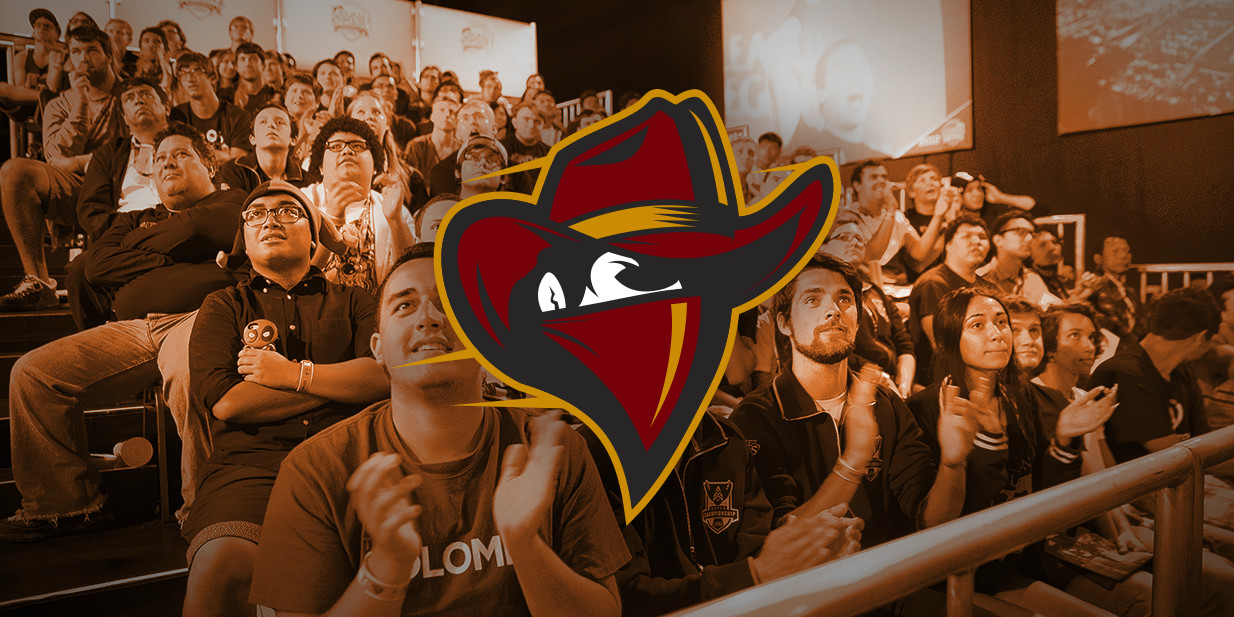

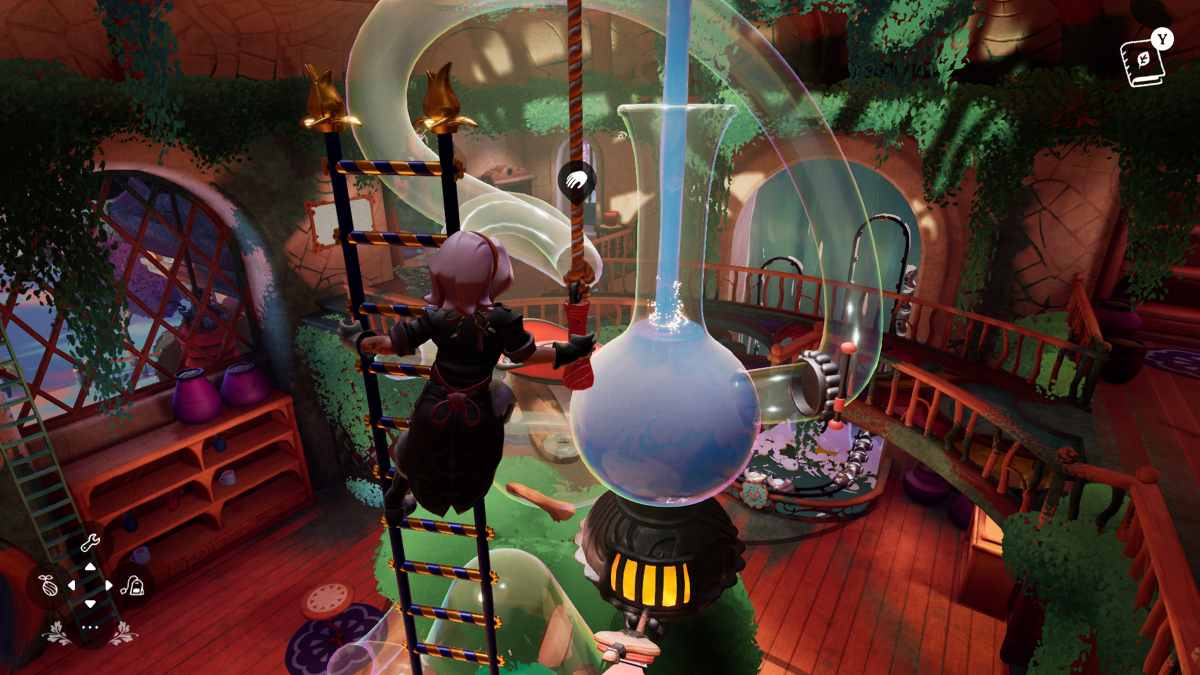

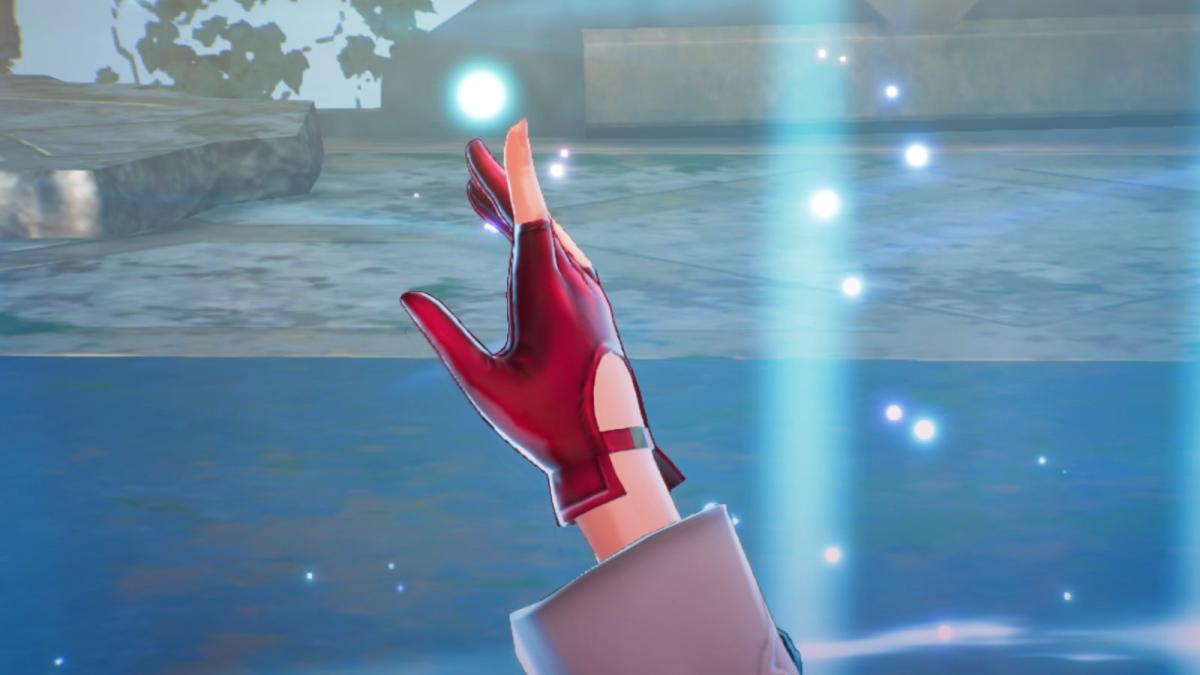
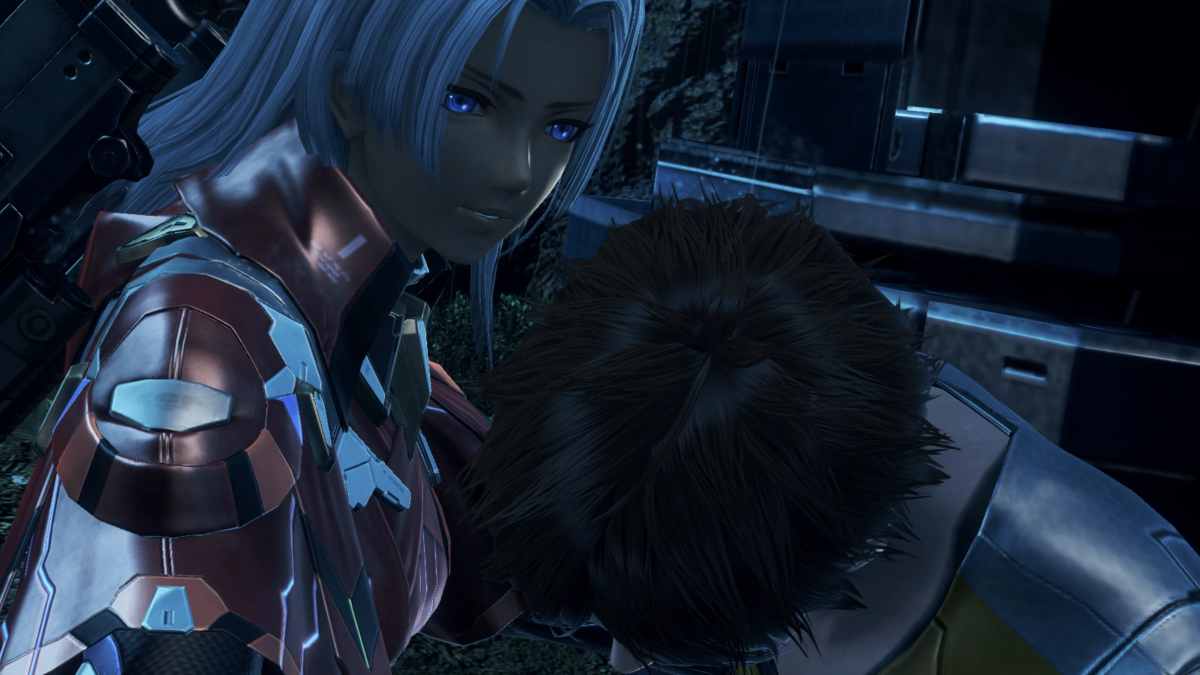

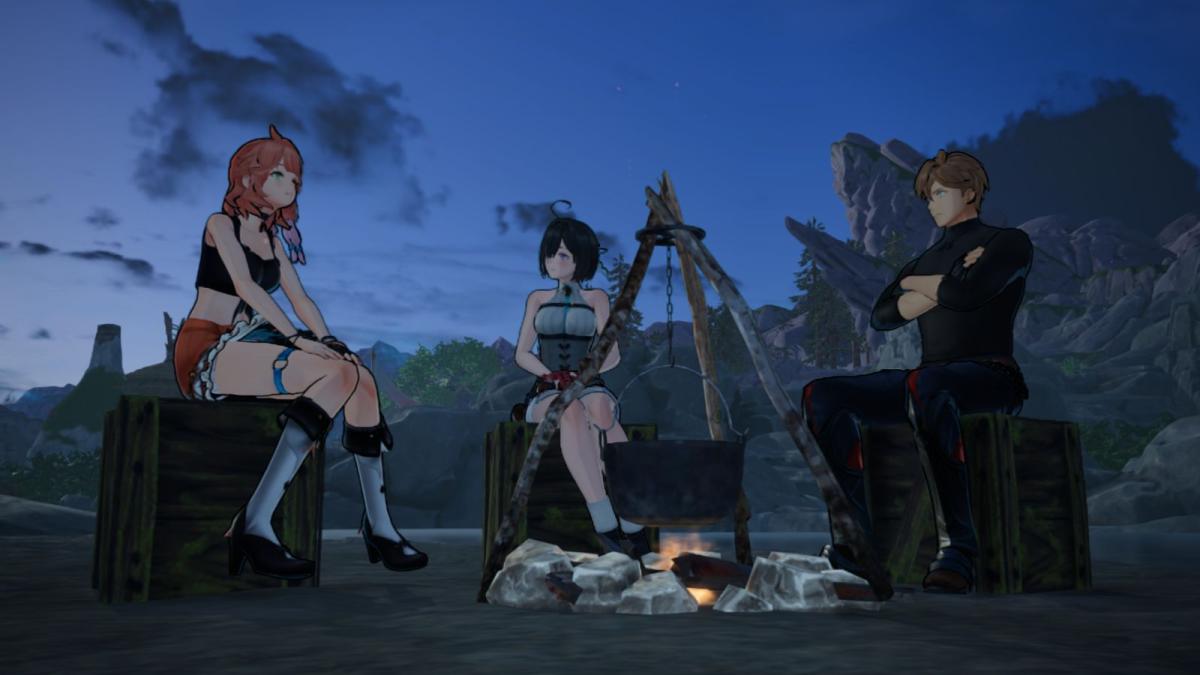

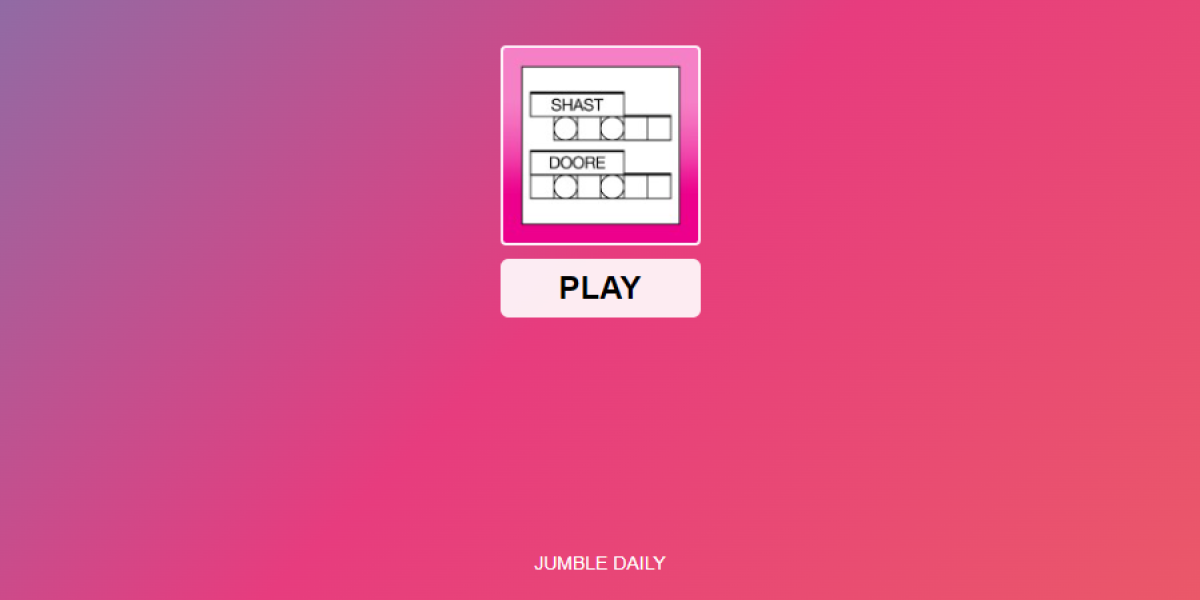
Published: Aug 12, 2015 05:30 am